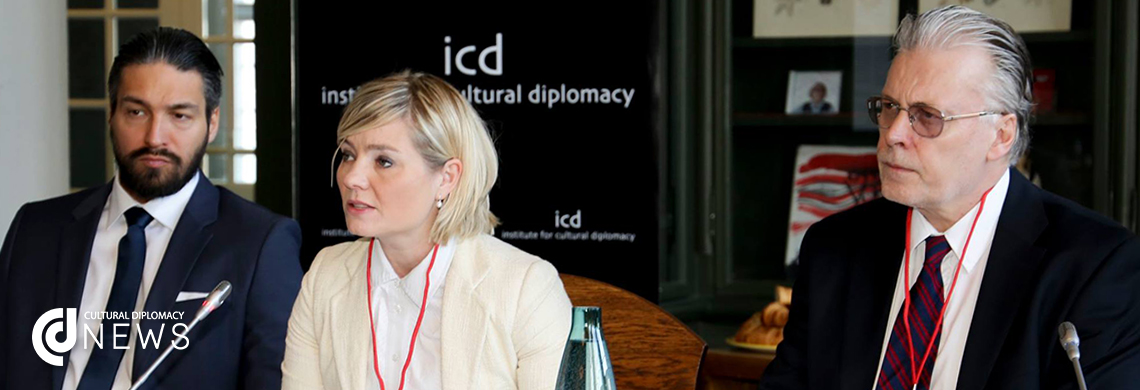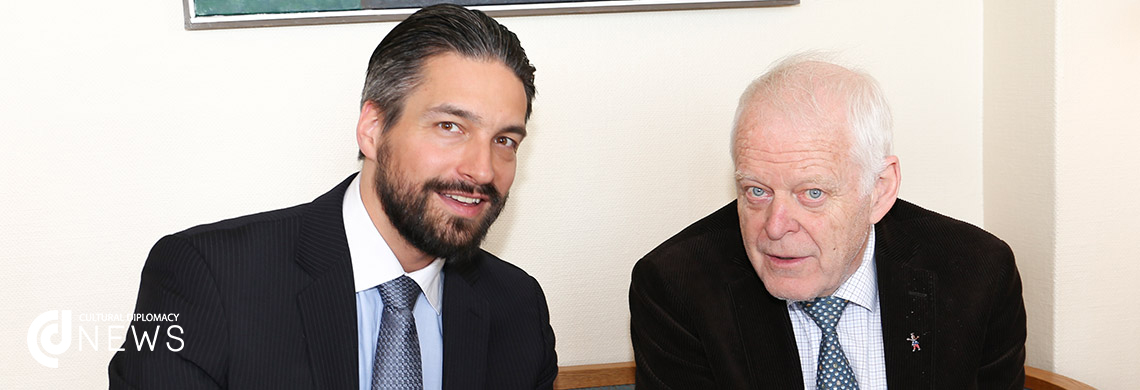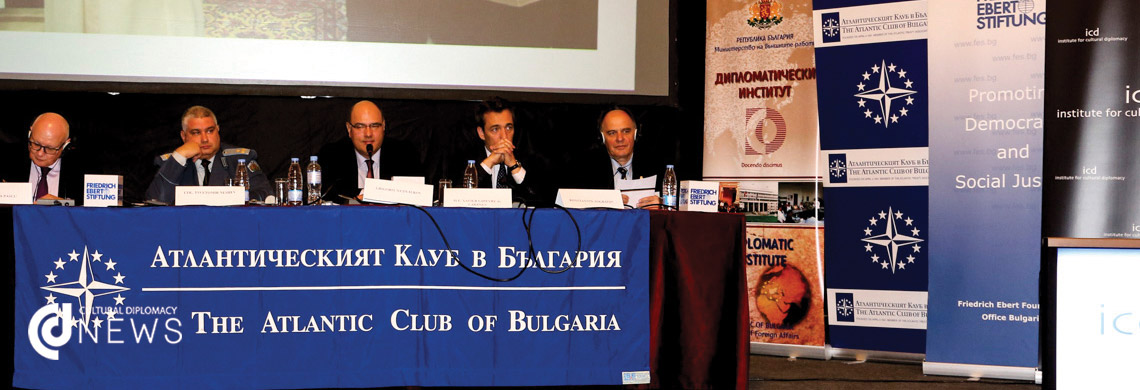Interview with Col. Andrew Budd (Branch Chief, Strategic Policy and Concepts, International Military Staff, NATO)
29/05/2010 Interviewed by Jack Hood
Q1. The government of the Islamic Republic of Afghanistan faces many challenges towards effective governance, crucial in terms of a troop drawdown. How is NATO assisting the Afghan government in terms of governance and institution building?
The answer is that ISAF (the international security assistance force), is doing far more than it should be doing, purely by virtue of the fact that others are not doing it. It is not a criticism per se, it is a factual observation. Governance is all about politics, and politics require political leadership. There is no political leadership coming from the international community writ large. All the countries, which make up ISA, act individually to advance that particular cause. History will show that President Karzai, regardless of whatever the international community think of him now, cried out for capacity building as the basis for development for his country in 2002 when he became the first interim President prior to the Presidential election in 2004. The international community however did not answer. Even today the response is patchy and the international community bears a large part of the responsibility for the situation that we find ourselves in in 2010 having failed to heed that call in 2002. Yet at the same time, whenever something happened the cry from the West was always ‘well it’s an Afghan problem and they should solve it.’
Q2. People here today have been talking about the troop buildup over the summer. Is there a commensurate buildup of development assistance and expertise, in PRTs for example?
The answer to that is yes. It is not a question of the buildup through the PRTs specifically, but more fundamentally it is the realization that the military operations are beginning soon and that they are only there as part of the nexus of security, development and governance. So they are not there for a military purpose, they are there for a collective aim to get to a political goal. That is the fundamental basis with which the campaign will now move forward. Since October of last year General McCrystal has the commander of ISAF, and there was this recognition but there were not the mechanisms in place to do it, be it simply through a result of institutional analysis, a lack of resolve, a lack of understanding at the distance of our capitals, or from problems on the ground in the country itself.
Q3. How would you characterize the NATO-Pakistan relationship today, and is the Pakistan government becoming more cooperative in terms of its porous border with Afghanistan?
I deliberately will use the term ISAF. You can call it NATO-ISAF if you like, just because it happens to run ISAF, but there’s two elements to this question. Firstly the relationship between Pakistan as a nation and NATO as an international organisation is something which has only existed for perhaps the past three years, maybe since 2006. But it was only when NATO becoming responsible territorially for Afghanistan that that relationship concerning the border had to be one which NATO was a part of, and one which was exercised by the commanders on the ground. In 2006, the Commander of ISAF, during the sixth rotation, spent an awful lot of effort fostering and developing that relationship and creating institutions at the joint border checkpoints: the Pakistani presence in the operations and intelligence in Kabul. For securities purposes it developed quite well. The fact that the Pakistani forces have undertaken operations in the SWOT valley, the tribal areas etc. is more through US political pressure than the pressure from NATO as an organization itself, but is it going the right way? Yes it is. Personally I have a great deal of sympathy for Pakistan, whose country is between a rock and a hard place in all of this. There is a very difficult internal political balance to be maintained. They’re trying to satisfy outside pressures as well and all in a country where, of course, its own governance is pretty fluid at the same time. I think Pakistan is doing a pretty good job and are making a genuine effort.
Q4. How is the NATO strategy involved with engaging local communities, both in terms of gathering COIN intelligence and gaining acceptance as temporary, even hopefully benevolent force?
A benevolent force that’s busy killing people. I think that as an organization if we are honest with ourselves, our engagement in Afghanistan has been as ad hoc as the rest of the international community's engagement. When NATO intervened with the command of ISAF in 2003, it was certainly not done with any real strategic analysis of the problem, that is Afghanistan and the ingredients required for the solution. It was done for other reason, of a political nature. Collectively we have not given this the same attention, resolve and resources as the Balkans. We have had our challenges with the levels of commitment with individual allies within the alliance. So ultimately, have we ever had a top down driven strategy? No is the answer. Mr Jalalai talked this morning about the tactics without strategy being the noise before defeat and think that is quite close to the truth. It is only now that the American's focus is on counter-insurgency, It is an counter-insurgency as opposed to counter-terrorism, which is what they were doing from 2001 to 2009. The switch of their resources and strategic thinking, which has largely come about from progress made in Iraq, means that we are now moving in the right direction. It is not a military movement in the right direction. It is a campaign movement in the right direction and that is a campaign, which includes security, development and governance for a political end. This is not a purely military thing. If you read the speech from Robert Zelic, the President of the World Bank, in Geneva in 2008, he said our generation must recognize the nexus between all these things. It’s not security and development as per normal. It's about securing development to allow roots to go down deep enough that security and development can take hold over a generation or more. This puts a time scale on it. So essentially this is not a military problem. We have however given the military the ownership of the problem, and that is wrong. We (the army) are doing too much, and while we have people with the leadership, ability and commitment to do it, other organizations simply do not have those people in place.
Q5. In terms of responsiveness of ISAF forces to the challenges in Afghanistan, there have been a lot of differing strategies adopted here and there over the years, but now with the new strategy coming from General McCrystal, how well do you think that lessons have been learnt and built upon?
I think the answer to that is pretty well, albeit slowly. Over almost 8 years, it has now been this great realization of what is required to get a solution. McCrystal has provided that unified strategy. Many Allies also have increasing the number of resources they commit to Afghanistan as a result of it, and also as a demonstration of their commitment. That commitment, of course, is being challenged. We’re getting there, but the way things happen on the ground are still too heavily driven by matters in the various different parts of Afghanistan, and by the territorial carve up, Germany in the north etc. Development is that which Berlin thinks is the right thing to do. In Helmund it's what London thinks is right, or The Hague etc. It’s characterized by the resources which they are prepared to put into their regions and it’s almost their programs.
Q6. Has one been more successful than others?
Well you’re not comparing apples with apples, because the circumstances in different countries are so vastly different, geographically you can’t measure it in that respect. The fact remains that it's not being done with a central plan from a central government. The nations are responding to their perceptions rather than to the central perception and that is no way to run such a campaign. I don’t mean necessarily the insurgency, because it would be the same campaign, in a fragile post conflict situation where the threat of conflict still exists. We were in that situation from 2002 until 2006 when the insurgency bubbled up and we avoided getting it right then.
What do you think will be left behind in Afghanistan in terms of establishing an Afghan National Security Force? This is of fundamental importance because there will be no solution while security is provided from forces from outside the country and there will only be acceptance by the population of enduring security when they know it is their security forces that are providing it and that is the police, intelligence, military. Every component of the military not just the military in its own right. Since 2002 the Afghan Security Forces have been trained. In the early days, the US army trained the Afghan Army and interestingly enough the current Ambassador to Afghanistan, Carl Heikenberry, who was a soldier prior to retiring, was the Commander of the training mission in 2003 when I first went to Afghanistan.
If a degree of foresight had been observed then, then it might have been better if America’s efforts and resources had been towards an Afghan police force rather than an Army. That has perhaps come home to roost. There is now an increasing emphasis on the training of security forces. Once again NATO is leading this, and it should not have to. It is also taking a leading role on training the police in an extraordinary way including making sure that happens. It is getting better. The resources needed are coming in but it’s the resources to make sure the Afghanistan security forces are self-sustaining for the future, which is the next stage that needs to be addressed. There is no point training up a 180 or 200 thousand now if it is not self-sustaining in the future. It is not a quick fix and requires time and the stamina to see it through.
































